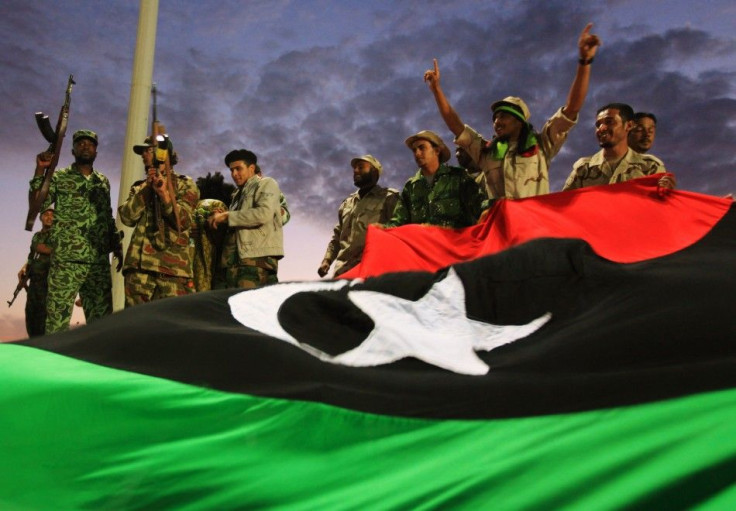Armed Protesters Occupy Libyan Parliament, Decrying New Cabinet

The new Libyan Prime Minister Ali Zidan faced major opposition following his selection of a 30-member cabinet on Tuesday -- but not the kind he was expecting.
About 100 protesters -- most of them armed -- stormed the parliament building on Tuesday, just as Zidan was giving a speech about his cabinet selections. The rebels complained that some of the selected ministers had ties to the regime of former dictator Moammar Gadhafi, who was overthrown in Libya’s Arab Spring revolution last year.
By Thursday, the number of protesters in and around the parliament building in the capital city of Tripoli had swelled to about 200, according to the Associated Press.
Ever since Gadhafi was overthrown last year, Libya has struggled to cobble together a national government that is both representative and authoritative. And although the administration is still weak and serious problems are rife, Libya has certainly made progress since the revolution.
The parliamentary body -- called the General National Congress,or GNC -- was established in a July election that leaned more liberal than other Arab Spring post-revolution polls. It consists of two blocs: a liberal secular coalition and an Islamist party supported by the Muslim Brotherhood.
The GNC’s selection of Zidan as prime minister was the next major event -- even though it was the parliament’s second attempt at choosing a leader. It had first settled on Mustafa Abushagur, a technocratic politician whose term was cut short after less than a month in office.
Abushagur was selected the night after a group of extremists launched a violent attack on a U.S. consulate in Benghazi that killed U.S. Ambassador to Libya Christopher Stevens and three other diplomats. He quickly failed to gain parliamentary approval for his cabinet and was ousted with a majority GNC vote on Oct. 7.
So Zidan knew that the selection of a cabinet would be of utmost importance -- his first test of political skill, and a measure of his willingness to compromise.
When he announced his chosen ministers on Tuesday -- a mix of men and women, Islamists and liberals, urbanites and rural dwellers -- he seemed likely to garner the congressional approval he sought.
"No region has been favored over any other," he said on Tuesday, according to Al Jazeera. "We don't want to repeat mistakes or provoke the street."
Zidan’s cabinet was approved by the GNC on Wednesday, but some members of the public have other ideas.
"Some of them have had long ties with Gaddafi, we don't want them," said one protester to the BBC.
The ongoing incident highlights Libya’s biggest challenge to date: lack of control over armed militias. The weak administration still relies heavily on loosely connected security forces to maintain order on the streets, but many of these do not consider themselves beholden to the government.
These are the same militias that banded together to wrest power from the regime of Gadhafi last year. Today, they are loath to relinquish what they see as their rightful local sovereignty.
The protesters are demanding that Zidan’s cabinet members be more thoroughly vetted, and all Gadhafi-connected ministers be ousted.
© Copyright IBTimes 2025. All rights reserved.






















